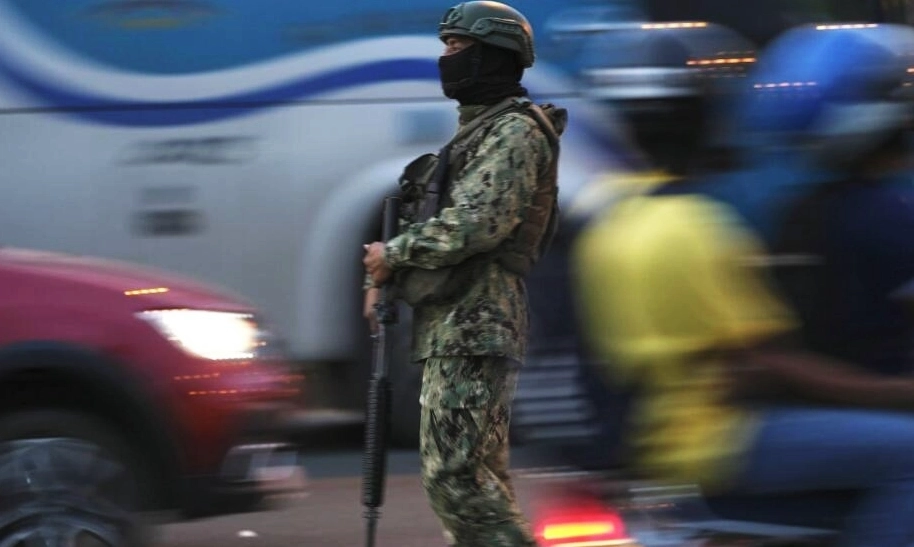A few years ago you could read headlines such as “Ecuador teaches us the recipe for prosperity”, “The Ecuadorian miracle” or “The good life has triumphed”. Ecuador, a country halfway around the world, had managed to overcome the removal of President Bucaram in 1997; the inflationary, financial, fiscal, and debt crisis of 1998-1999; the overthrow of Mahuad in 2000; the rebellion of the outlaws and the fall of Lucio Gutiérrez in 2005. Besides many other vicissitudes that affected the political, economic, and social stability of the state. Rafael Correa, a university professor who had not yet turned 50 and occupied the Ministry of Economy and Finance under President Alfredo Palacio, seemed to have brought back the illusion to the Ecuadorian people with his Citizen Revolution. However, the era of hope and prosperity is now in the past and the deterioration the country has suffered recently has led to a situation of crisis, serious insecurity, and narcoterrorism.
After his electoral victory in 2007 with the Alianza País Movement, Correa governed the Andean country for a decade, proclaiming as his objectives the implementation of 21st-century socialism, the sustainable development of society, and humanistic life through good living. With the enactment of the 2008 Constitution, a model was established in which the state became the guarantor of collective and environmental rights — displacing the priority of individual guarantees —, played a central role in production planning, and established a fourth power called the Council for Citizen Participation and Social Control, which coexisted with the three traditional ones. In the area of foreign policy, he minimized the influence of globalization and opted for Bolivarian regional integration. The charisma of the new president, the social mobilization in favor of change, and the boom in the price of raw materials seemed to be the perfect combination to inaugurate an era of prosperity for Ecuador.
Seven years after he departed from power, little remains of that Ecuador. The crisis and increasing polarization during the end of Correa’s presidency; the internal fracture in Alianza País between supporters of the former president and his successor, Lenin Moreno; the open trials of Correa, the conviction for bribery and his flight to Belgium; the fall in the price of raw materials; the mutual death activated by former president Lasso and the increase in insecurity are just some of the events that help to explain how the Andean country has moved toward a situation even more complicated than that of the late 1990s. A new element has appeared in the equation: narcoterrorism.
The situation Ecuador is going through, where President Noboa has declared an “internal armed conflict”, may well resemble what happened in Colombia with Pablo Escobar’s Medellín cartel or in Mexico with the war against the cartels during the Calderon administration. The drug trafficking mafias carry out a strategic alliance with extremist armed sectors and sow terror by detonating bombs, kidnapping, and murdering civilians and police. Thus, fomenting chaos to control the streets. Los Choneros, Los Lobos and Los Tiguerones, the three main gangs — although there are more than twenty groups dedicated to these activities in Ecuador — have introduced criminal actions that until recently were marginal in the country, such as the normalization of contract killings, massive attacks on police forces, prison massacres or the display of corpses on bridges as warning signs.
However, how did it come to this point of crisis and narcoterrorism? Although it is difficult to summarize all the elements involved, it is possible to list some circumstances and bad decisions that have precipitated the disaster. First, the economic crisis following the end of the commodities boom made it easier for drug trafficking to become an informal outlet for many Ecuadorians without work or income. Especially since the dollarization of the economy and the country’s weak financial controls facilitate the laundering of drug money. In addition, budget cuts to prioritize debt repayment, pushed by former President Moreno and deepened by Lasso, affected spending on police and prisons, weakening the already fragile state security apparatus.
Second, Correa’s decision to terminate the lease of a U.S. military base in the port city of Manta facilitated the transit of drug shipments to Colombia. The DEA, the anti-drug agency that guaranteed border controls in the northern zone, operated from that base. But, in addition, the law approved by Correa that keeps the accused in prison until their trial has quadrupled the prison population and the prisons have become spaces for recruiting new members for the gangs. Overcrowding and the difficult conditions for inmates to survive have turned Ecuador’s prisons into a kind of headquarters for drug traffickers. What is more, the spread of corruption among the agents has provided the gangs with an entire logistical network, with heavy weapons, rifles, and grenades being brought into the prisons.
Finally, the external context has also contributed to this crisis and narcoterrorism. Recently, the drug market has been transformed in the Andean region, especially after the disarmament of the FARC in Colombia, which controlled much of the trafficking. There has been a fragmentation of drug organizations, with the emergence of new gangs and export routes, some of which have moved to Ecuador. The country has ceased to be only a transit point and local gangs have become directly involved in cocaine production, storage, and distribution, establishing alliances with Mexican cartels. On the one hand, coca cultivation has increased in Esmeraldas and Sucumbíos, provinces bordering Colombia. On the other hand, more than a third of the cocaine coming from the neighboring country arrives in Ecuador to be distributed from there to the United States and Europe.
The combination of a weakened state and lack of social protection, an unfavorable economic context, and the expansion of drug trafficking have made Ecuador highly vulnerable to organized crime. The Andean country is immersed in a spiral of violence and instability that has banished to oblivion the progress made just over a decade ago.
*Translated by Janaína Ruviaro da Silva from the original in Spanish.












